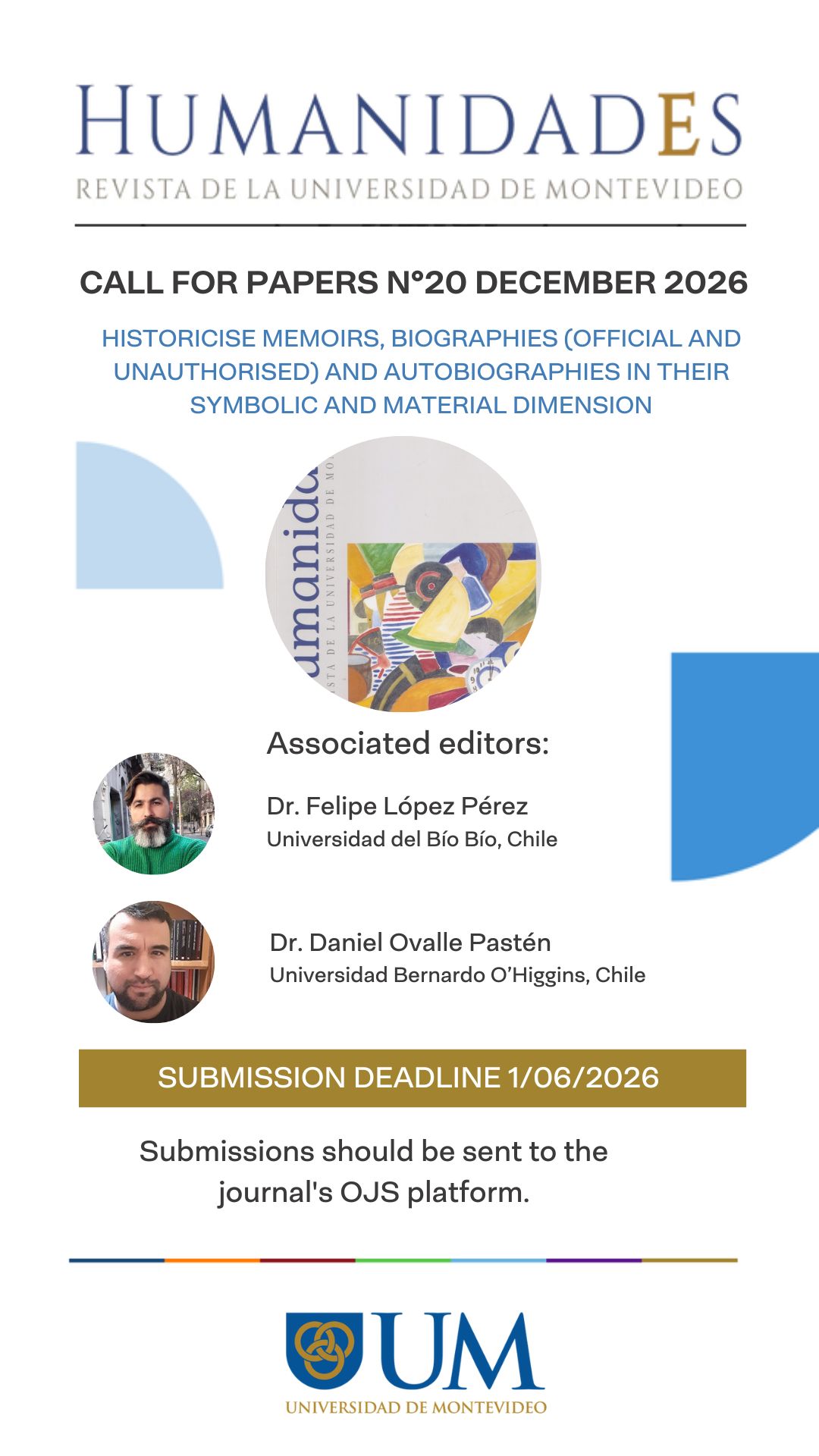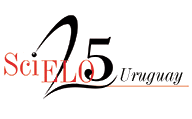CALL FOR PAPERS for Issue 20, December 2026, ‘Historicising memoirs, biographies (official and unauthorised) and autobiographies in their symbolic and material dimension’.

Call for papers for the ‘Studies’ section of issue 20 (December 2026)
Dossier: Historicising memoirs, biographies (official and unauthorised) and autobiographies in their symbolic and material dimensions
Editors associated with this issue:
Dr. Felipe López Pérez, Universidad del Bío Bío, Chile, flopez@ubiobio.cl
Dr. Daniel Ovalle Pastén, Universidad Bernardo O’Higgins, Chile, ovalle.daniel@gmail.com
With the consolidation of the so-called social media, the contemporary world is constantly producing content. In the future, historians will have the task of studying, probably using digital tools, the information emanating from a specific event and the different currents of opinion on a topic. In this dynamic, the publishing industry, in its eagerness not to disappear in the face of the new technological media, offers its platform to a wide range of leaders in various fields of knowledge, politics, sports and entertainment, among others. In this way, autobiographical books emerge, the writing of which rests on the figure of the ghostwriter. As Pierre Bourdieu points out, the literary field has a strong symbolic component that feeds, thanks to the logic of capitalism, success stories based on the illusion of meritocracy and putting the author above the content.
Memoirs, as a literary genre, go back a long way. The same goes for biographies, present in the great ancient civilisations and surviving to the present day. Both ‘The Epic of Gilgamesh’ and the autobiography “Open” by the American tennis player André Agassi are testimonies that add to the wide range of texts in the field of educational novels (Bildungsroman), whose universe is not exhausted in the printing of a book, because with the current offer of media, added to the ‘empire of images’ that adapts the content of these on the big screen, a market niche has been consolidated that has been overlooked by cultural studies.
We observe the propagandistic use in the contemporary culture industry, which forces us to problematise - as the German critic Siegfried Kracauer did with regard to the rise of Nazism to power in the 1930s - not only the narrative and the intention behind an autobiographical and biographical text, but also the ideological aspects behind the entertainment and its relation to power, for biography is not only a testimony or a showpiece of a period, it is at the same time a psychosocial device that operates on a pedagogical level on the lifestyle one wants to aspire to, or to preserve. It is the ‘practical past’ - to use the contributions of the late Hayden White - that configures reality and fiction in narratives that emerge and create reality.
Consequently, this dossier aims to historicise the literary genre of memoirs (biographies and autobiographies) both in its dimension as a primary source of disciplinary work and in its symbolic and material aspects linked to the contemporary cultural industry. Therefore, their history can be approached from the medium (printed or audiovisual), i.e. from the perspective of the ‘history of objects’, Fernand Braudel's ‘material civilisation (culture)’ or the ‘history of knowledge’. Likewise, from literary theory and its respective evolution of genres and authors who have studied biographies. Likewise, from intellectual history that investigates the currents of thought or what the French author François Dosse points out: ‘intellectual biography’, of which he is one of the main promoters.
Thematic axes (suggested):
Biography and memoirs as a theoretical and historiographical source.
The history of biographies adapted to the culture industry.
Biography in the age of social networks.
The emotional dimension of biographies and memoirs from a historical perspective.
The deadline for the submission of papers is 1 June 2026.
Texts may be submitted in Spanish, English and Portuguese.
Contributions must conform to the editorial guidelines of the journal: http://revistas.um.edu.uy/index.php/revistahumanidades/about/submissions
Submissions should be sent to the journal's OJS platform.
Humanidades: revista de la Universidad de Montevideo is a peer-reviewed, open access, indexed, scientific journal. It publishes articles on Philosophy, History, Literature and Art and accepts scientific contributions in Spanish, English, French and Portuguese from specialists from various national and international centres. It is published as a continuous publication every six months (January-June and July-December). Under this modality, the texts are published immediately after their approval and layout. Its aim is to constitute an open forum in which the disciplines dialogue with each other and contribute new knowledge. The journal is indexed in: ERIHPLUS, Dialnet, DOAJ, EBSCO-Academic Search Ultimate, Latindex, Scielo, Scopus, among others.
























 This work is under a
This work is under a 